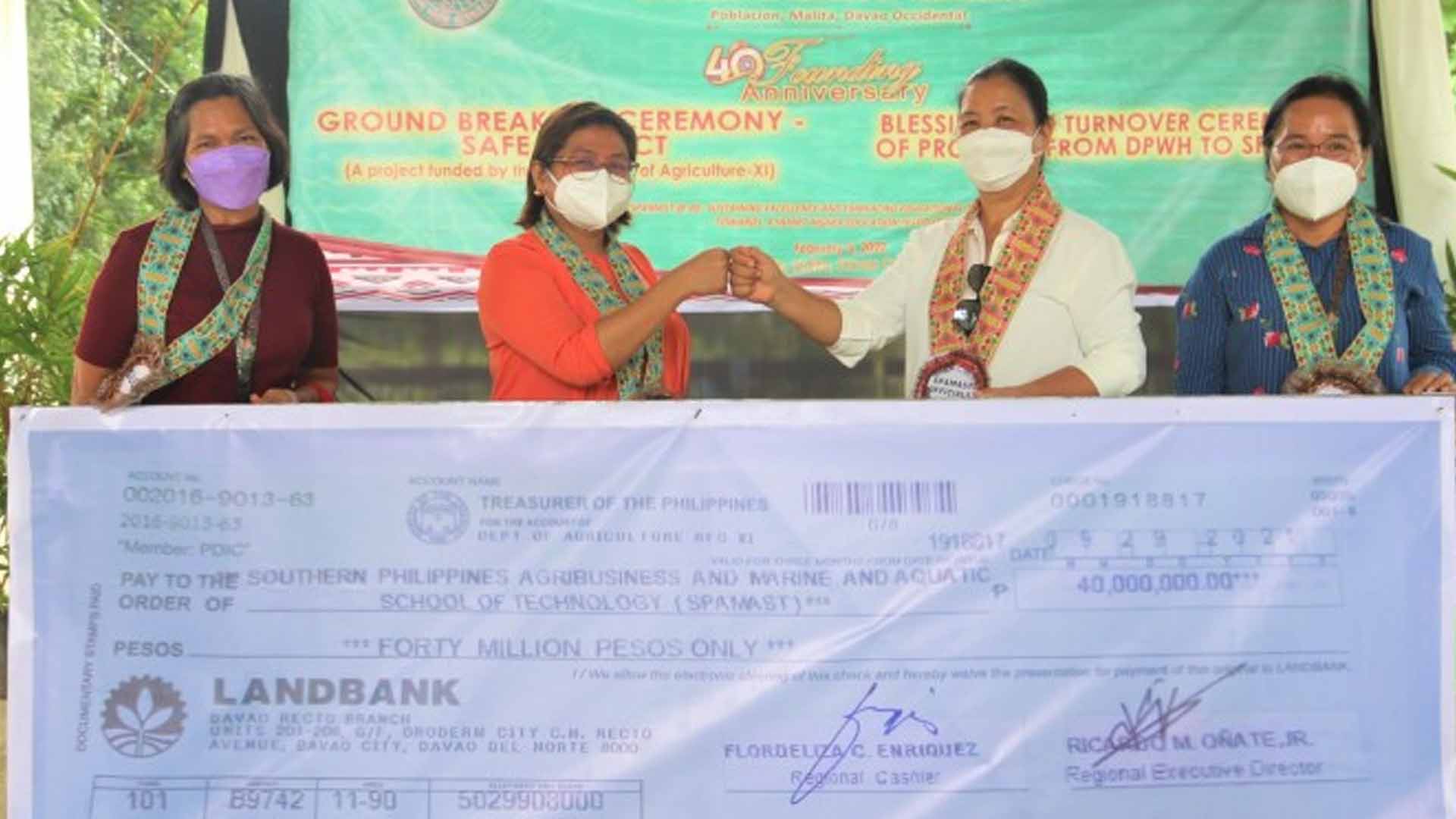The Department of Agriculture in Davao Region (DA-11) has turned over PHP40 million worth of interventions to the Southern Philippines Agri-Business and Marine and Aquatic School of Technology (SPAMAST) in Malita, Davao Occidental.
The assistance is for the implementation of a fish processing and innovation hub under the Sustainable Agriculture and Fisheries Enterprise (SAFE) project in the area.
In a statement Friday, DA-11 said the service facility would further improve the agri-fishery enterprise in the Davao region especially in the processing and value-adding of “bangus” and “tilapia” fish products.
DA-11 added that the 512-square meter SAFE building is expected to operate in October this year in Malita town.
The package of interventions includes the establishment of the PHP20 million worth fish processing building and cold storage, PHP8.5 million for agricultural supplies and Information and Communications Technology (ICT) equipment, PHP6 million for machinery which include a reefer van, PHP3.5 million for operating and utility expense, PHP1 million for the skills training and PHP1 million for professional expenses.
Dr. Marila L. Corpuz, DA-11 technical director for operations, said during the turnover ceremony on Thursday that the initiative is part of the key strategies of the department to level up the agri-fishery sector.
“This project is part of the DA’s goal to establish agri-industrial business corridors with fisheries management areas and trading posts to provide our small farmers and fisherfolk access to resources, including state-of-the-art production technology, capital, and value-adding facilities,” she said.
Corpuz added that with the needed facility and equipment, the community will soon produce the volume of thermally processed products, dried and smoked bangus, and tilapia which could meet the required quality in both local and international standards.
“In partnership with SPAMAST and the local government unit, we will make sure that our smallholder fishers would benefit from this project thru agreements with small and mid-size enterprises, fish cages, pens, and fishpond owners as cooperators,” she said.
For their part, SPAMAST president Dr. Ruth Lucero said they will ensure the active involvement of women and youth organizations, alumni associations, and even the overseas Filipino workers to provide them additional sources of income.
“Aside from our goal for this project to promote and market registered fish products from the locale, we will also involve students in its research component for which matured outputs will eventually benefit the farming and fishing community,” she said. (PNA)







